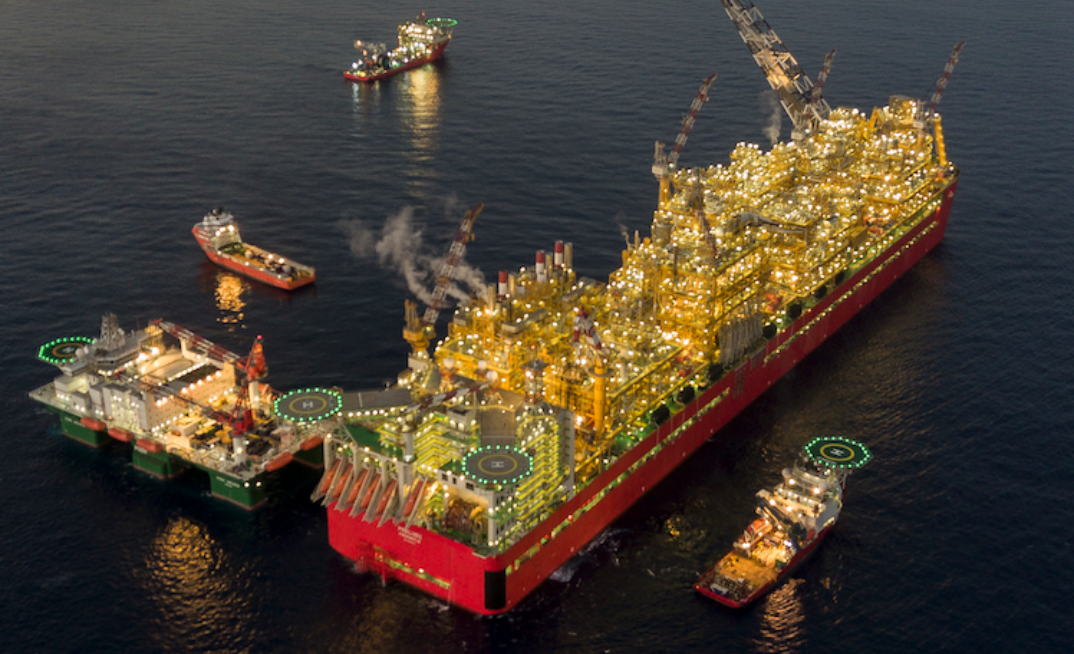Shell seems to be quietly implementing a leadership reshuffle and workforce restructuring at its Prelude floating liquefied natural gas (FLNG) facility as part of ‘Turnaround 2026' – a strategy to address the facility's long-standing operational, financial and safety concerns.
Designed as a model for LNG production, Prelude FLNG stands 100 metres tall and spans nearly half a kilometre. It holds 165,000 cubic meters of LNG—equal to 165 Olympic pools—with an annual output of 3.6 million tonnes of LNG, 1.3 million tonnes of condensate, and 0.4 million tonnes of LPG. Its vast infrastructure includes 17 kilometres of mooring chains, 450 kilometres of pipelines, and 3,000 kilometres of electrical cables. Yet, amid ongoing challenges, Shell has no plans to build another Prelude.
These engineering achievements have not translated into sustained operational success. Production setbacks, regulatory scrutiny, and investor concerns over emissions continue to cast doubt on Shell's ability to turn the project around.
Shell has confirmed that Prelude FLNG's long-serving Asset Manager, Peter Norman, will retire on March 28, but has declined to name his successor. Industry sources suggest the leadership change is part of a broader structural overhaul at the $17.5 billion floating LNG facility, which has faced persistent operational setbacks and regulatory scrutiny since starting production off the Western Australian coast in 2018.
YOU MIGHT ALSO LIKE
Shell Australia has also indirectly confirmed that 'Turnaround 2026' is underway but has remained tight-lipped on its implications for crew stationed aboard the massive Prelude FLNG facility. However, industry sources suggest the shake-up has already seen several senior figures depart or transition into new roles. Among them, Prelude Operations Manager Andrew Harvey and Offshore Installation Manager Kerry Lambert are understood to have moved within Shell, while Operation Subject Matter Expert (SME) Stephen Kidd is currently on a career break, according to LinkedIn.
The changes come as Shell works to stabilise operations and restore investor confidence in the beleaguered asset, which has struggled with safety incidents, unplanned shutdowns, and intense regulatory oversight since production began.

Prelude's history of operational failures and safety breaches
Amongst a long list of operation missteps, a fire in December 2021, an incident so serious it triggered a complete power outage, forcing a five-month shutdown that will be remembered as Prelude's darkest days. In fact, the breach was so serious that Australia's offshore regulator, the National Offshore Petroleum Safety and Environmental Management Authority (NOPSEMA), blocked a restart until Shell could demonstrate that it had rectified critical safety issues. Operations resumed in April 2022 following rigorous regulatory scrutiny and extensive remediation efforts.
Then, in June 2022, more than 200 faulty smoke detectors compromised fire safety measures, raising further concerns. Most recently, in February 2025, NOPSEMA issued an Improvement Notice after finding hazardous gases, including benzene and hydrogen sulphide, were not being safely vented, posing health risks to workers.
Subsequent audits exposed systemic failures in safety protocols, including the exposure of workers to hazardous gases such as benzene and hydrogen sulfide.
In February 2025, NOPSEMA issued yet another occupational health and safety (OHS) improvement notice against Shell for failing to control hazardous gases at the facility - further intensifying ongoing safety concerns.
Industrial relations and workplace culture under scrutiny
Norman's tenure as asset manager will be remembered as one marked by industrial disputes, notably a 2022 standoff with the Offshore Alliance, which represents unionised Prelude workers.
A workforce-wide rejection of Shell's proposed enterprise agreement led to prolonged strike action, delaying essential maintenance. The Offshore Alliance has accused Shell of mismanagement, attributing Prelude's operational disruptions and financial losses to a toxic workplace culture and adversarial industrial relations.
Sources close to the matter suggest Shell is planning a major overhaul of Prelude FLNG's workforce, potentially replacing a significant portion of staff to reset the facility's operational and safety culture. While Shell has not confirmed the plans, personnel changes are understood to be under active consideration.
A costly and troubled asset
Prelude was initially projected to cost between US$10.8 billion and US$12.6 billion, but cost overruns pushed the final price tag to an estimated US$17.5 billion. Despite its status as the world's largest floating LNG platform, the facility has struggled to achieve stable production levels.
Repeated outages, technical malfunctions, and labour disputes have resulted in inconsistent output, calling its long-term financial viability into question.
In 2020, Shell recorded a substantial impairment charge against Prelude, reflecting its reassessment of the project's value amid persistent regulatory and operational challenges.
While production improved in 2023 and early 2024, NOPSEMA's latest compliance actions indicate that many of the facility's issues remain unresolved.
‘Turnaround 2026': a last-ditch effort?
With Shell recently securing environmental approvals for the Crux gas field, expected to backfill Prelude FLNG from 2027, the company faces mounting pressure to improve the facility's operational efficiency.
While Shell has provided few details on its '‘Turnaround 2026' strategy, it is expected to incorporate lessons from Prelude's turbulent 2023 maintenance shutdown, which was delayed by industrial action and the cyclone season before being extended due to additional maintenance requirements.
The upcoming overhaul is likely to prioritise proactive maintenance planning and workforce restructuring to reduce the risk of labour disputes and minimise downtime. Yet, questions remain over whether existing staff will be replaced and how Shell plans to sustain operations on the capital-intensive facility.
With fresh safety compliance challenges and a history of costly setbacks, ‘Turnaround 2026' looms as a pivotal moment for Prelude's future.























